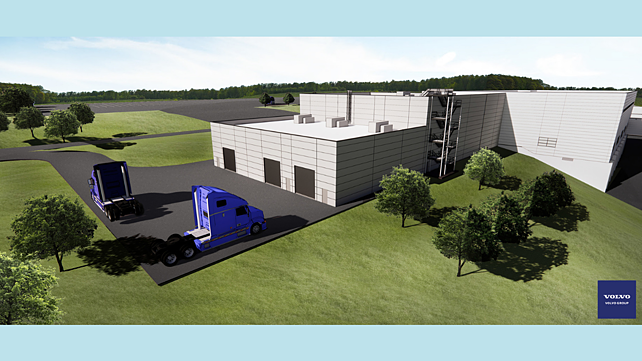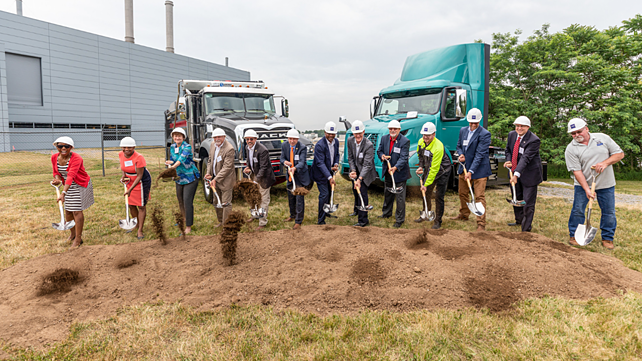
Volvo Group is investing $33 million to set up a new, state-of-the-art Vehicle Propulsion Lab (VPL) at its powertrain research and development site in Hagerstown, Maryland, US. The new lab is slated to operational from the second quarter of 2023.
The current lab at Hagerstown, set up at a $40 million investment, has been operational for 15 years. The company has spent an additional $12 million for upgrading the test cells and a portion of which was used to enable the creation of electricity regeneration when operating the dyno tests. Once the VPL is ready, the lab will have more than 3,300 square meters of space in two stories and connected to the existing engine development lab on the Hagerstown campus.
Volvo Group's Hagerstown campus is also home to its powertrain facility, which manufactures engines, transmissions and axles for Mack Trucks, Volvo Trucks, Prevost coaches and Volvo Buses sold in North America.
According to Volvo, the VPL will be the first facility in North America to comprehensively test current and future products for Volvo Trucks, Mack Trucks, Prevost and Volvo Bus to meet evolving government regulations and ensure high performance on the diverse North American roadways. The lab will have two environmental chambers. One will have a chassis dyno capable of emissions measurements and simulating extreme weather and altitude conditions. The other will offer testing of fully operative vehicles, including highway and vocational trucks, and coach buses, in various weather conditions.

VPL can undertake development and verification activities operating from minus 30 C to plus +40 C, wind speed simulation up to 85 mph (137 kmph), vehicle absorbing and motoring capability up to 1,600hp and altitude simulation up to 4,270 meters.
In addition the lab can take up various types of performance and emissions testing for battery electric, fuel cell, hybrid, natural gas and diesel technologies. It will also have the capability to test highway and vocational Class-8 trucks and coach buses for North American, South American and European applications.
The VPL will be one of the few places in operation that offers vehicle emissions and on-board diagnostics requirements at all expected operating conditions for trucks, buses and powertrains.
Lars Stenqvist, Chief Technology Officer, Volvo Group, said the Hagerstown powertrain technology site plays a significant role in the Volvo Group's efforts to offer advanced transportation solutions. The new VPL will enhance the company's ability to more quickly develop and test battery-electric and hydrogen-based fuel cell solutions and internal combustion engines, which will be powered by fossil-free fuels in the future, for its Class-8 trucks and coach buses.
Volvo Group expects the new lab to help drive ongoing product-quality improvements and speed-to-market capabilities due to the strategic migration from on-road testing to controlled, lab-environment testing.